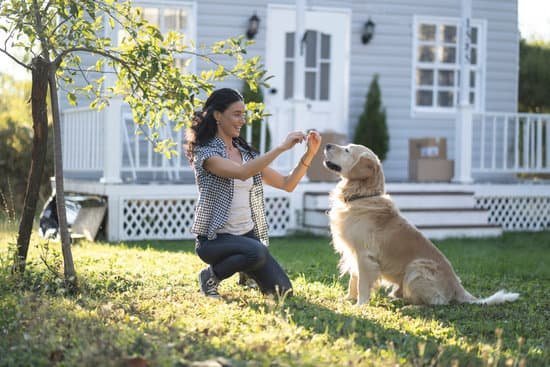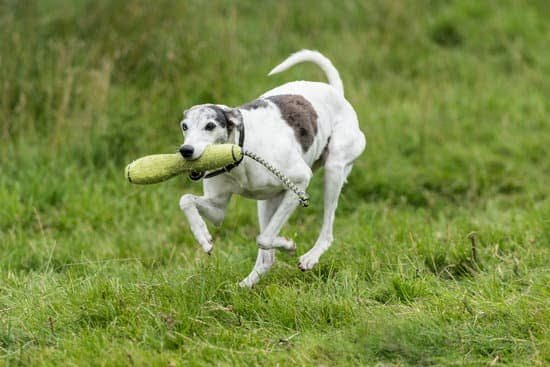Can you train a dog to stop begging? Begging behavior in dogs is a common issue that many pet owners struggle with. Whether it’s those soulful eyes or the persistent pawing, begging can be difficult to resist. In this section, we will explore the behavior of begging in dogs and why they engage in this behavior.
Understanding the root cause of begging behavior is crucial in addressing and preventing it. Whether it’s seeking attention, food reinforcement, or simply learned behavior, recognizing these triggers can help in developing effective training techniques. Additionally, we will delve into the negative effects of allowing begging behavior to persist and how it can impact your relationship with your furry friend.
Furthermore, we will discuss basic training techniques for preventing begging, including utilizing positive reinforcement and the importance of consistency in training. Addressing the root cause of begging behavior and setting boundaries are also essential elements in effectively curbing this unwanted behavior. By understanding these aspects, pet owners can take proactive steps towards modifying their dog’s begging habits.
The Negative Effects of Allowing Begging Behavior
Allowing your dog to beg for food at the table may seem harmless, but it can actually have several negative effects on their behavior and overall well-being. One major issue with allowing begging behavior is that it can lead to obesity in dogs. If they are constantly receiving table scraps or extra treats, this can contribute to an unhealthy weight gain, which can lead to various health problems such as diabetes, joint issues, and heart disease.
In addition to the physical effects of begging, it can also lead to behavioral problems in dogs. Dogs that are allowed to beg may become more demanding and pushy when it comes to mealtime, which can create tension and frustration in the household. Furthermore, if a dog learns that begging leads to getting what they want, this behavior can generalize to other areas of their life, leading to disobedience and a lack of respect for boundaries.
Lastly, allowing begging behavior can also affect the relationship between you and your dog. It undermines your position as the leader and provider in their eyes and may lead to an imbalance in the owner-pet dynamic.
| Negative Effects | Examples |
|---|---|
| Obesity | Health problems such as diabetes and heart disease |
| Behavioral Problems | Increased demand at mealtime |
| Relationship Strain | Lack of respect for boundaries |
Basic Training Techniques for Preventing Begging
Dogs are naturally inclined to beg for food, as it is an instinctual behavior related to their survival instincts. They use their puppy dog eyes and adorable demeanor to get human food scraps. However, allowing this behavior can lead to negative consequences for both the dog and its owner. It is crucial to train your dog to stop begging in order to maintain a healthy relationship with your pet and prevent any potential health issues from feeding them table scraps.
One effective training technique for preventing begging is teaching your dog basic obedience commands such as “sit” and “stay.” By using these commands before meal times or when eating, you can establish boundaries and reinforce the idea that food will only be given when they are calm and obedient. Additionally, it is important to refrain from giving in to your dog’s begging behavior, as this only reinforces the habit.
Another technique that can be used is redirection. Instead of giving your dog scraps from the table, provide them with a designated treat or chew toy during mealtime. This redirection not only teaches them that begging will not result in receiving food, but also gives them something appropriate to focus on while you eat.
Consistency is key when training a dog to stop begging. All family members should be on board with the training efforts and follow the same rules. Inconsistency in enforcing boundaries can confuse your pet and make it more difficult for them to understand what behavior is acceptable.
| Training Technique | Description |
|---|---|
| Basic Obedience Commands | Teaching commands like “sit” and “stay” before meal times. |
| Redirection | Providing a designated treat or chew toy during mealtime instead of table scraps. |
| Consistency | All family members should enforce the same rules consistently. |
Utilizing Positive Reinforcement to Discourage Begging
Begging behavior in dogs can be frustrating for pet owners, but with the right training techniques, it is possible to discourage this habit. Utilizing positive reinforcement is a proven method for discouraging begging and promoting desirable behavior in dogs.
Using Rewards and Praise
One effective way to discourage begging behavior is by using rewards and praise when your dog displays the desired behavior. When your dog refrains from begging during meal times or when you are eating, be sure to reward them with treats, praise, or even extra attention. This positive reinforcement will help your dog understand that good behavior results in positive outcomes.
Consistency Is Key
Consistency is crucial when using positive reinforcement to discourage begging. It’s important for all family members and visitors to adhere to the same rules and not give in to begging behavior, as inconsistency can confuse the dog. By consistently rewarding good behavior and ignoring or redirecting begging behavior, your dog will learn what is expected of them.
Avoid Punishment
It’s important to note that punishing a dog for begging can you train a dog to stop begging Instead of scolding or punishing your pet for begging, focus on positively reinforcing good behavior. Oftentimes, punishment can lead to fear and anxiety in dogs, which may exacerbate their unwanted behaviors.
By utilizing positive reinforcement techniques such as rewards and praise, remaining consistent in your training approach, and avoiding punishment, you can effectively discourage begging behavior in your furry companion.
The Importance of Consistency in Training
Consistency is key when it comes to training your dog to stop begging. Dogs thrive on routine and clear boundaries, so it is crucial to be consistent in your approach. Here are some important ways in which consistency can aid in effectively curbing begging behavior:
- Consistent Commands: When training your dog to stop begging, using the same command or cue every time is essential for them to understand what is expected of them. Whether it’s “down” or “go to your spot,” consistency in the language you use can help your dog associate the command with the desired behavior.
- Consistent Rules: It’s important for all members of the household to adhere to the same rules when it comes to feeding scraps from the table or giving in to begging behavior. Inconsistency among family members only confuses the dog and makes it harder for them to learn what is acceptable behavior.
- Consistent Reinforcement: Positive reinforcement, such as verbal praise and treats, should be consistently used when your dog exhibits good behavior and refrains from begging. This helps reinforce the desired actions and encourages your furry friend to continue behaving appropriately.
In addition, consistency also extends beyond training sessions. Maintaining a regular feeding schedule can help reduce your dog’s tendency to beg for food, as they learn when to expect meals. By being consistent in all aspects of training and daily routines, you can effectively teach your dog that begging is not acceptable behavior.
Addressing the Root Cause of Begging Behavior
Identifying the Root Cause
One of the most important steps in training a dog to stop begging is to understand the root cause of this behavior. Some dogs beg out of hunger, while others do it for attention or out of habit. By observing their behavior and analyzing their environment, you can identify what triggers their begging and address it accordingly.
Applying Behavioral Modification
Once you have identified the root cause of your dog’s begging behavior, you can start applying behavioral modification techniques. For example, if your dog begs for food because they are genuinely hungry, consider adjusting their feeding schedule or providing more fulfilling meals. If they beg for attention, try giving them alternative ways to seek your attention such as through playtime or training exercises.
Seeking Professional Help
In some cases, addressing the root cause of begging behavior may require the expertise of a professional dog trainer or animal behaviorist. They can assess your dog’s behavior and provide personalized guidance on how to effectively modify their begging habits. Seeking professional help can be especially beneficial if your dog’s begging behavior is complex or persistent despite your training efforts.
By accurately addressing the root cause of your dog’s begging behavior and implementing appropriate training techniques, you
Tips for Setting Boundaries and Establishing Rules
Setting boundaries and establishing rules is essential when it comes to training a dog to stop begging. Without clear guidelines and expectations, it can be difficult for your furry friend to understand what is acceptable behavior. Here are some tips for effectively setting boundaries and establishing rules:
- Be consistent: Consistency is key when it comes to setting boundaries for your dog. Make sure everyone in the household is on the same page and enforces the same rules. If begging is not allowed at the dinner table, make sure no one gives in to those puppy-dog eyes.
- Use cues: Implement specific cues or commands that signal when it’s time for your dog to leave the dining area or stop begging. This could be something as simple as “go to your bed” or “sit.” Consistently using these cues will help reinforce the rules for your dog.
- Establish a designated feeding area: Set a specific area where your dog can eat their meals, away from the dining table. This will help them understand that begging at the table will not result in getting food.
By following these tips, you can train a dog to stop begging, and create a harmonious environment during meal times.
Remember, patience and consistency are key when implementing new rules and boundaries for your furry friend. With time and effort, you will see improvements in their behavior.
Understanding the Role of Diet and Feeding Schedules in Begging Behavior
Many dog owners may not realize that their pet’s begging behavior can be closely linked to their diet and feeding schedule. Dogs are opportunistic scavengers by nature, and when they beg for food, it is often because they have learned that there is a chance of getting a tasty treat if they persist.
This behavior becomes reinforced when owners give in to their dog’s begging and share their food. Not only does this create problems such as obesity, digestive issues, and bad manners, but it also reinforces the begging behavior itself.
One important aspect of preventing begging behavior is establishing a consistent feeding schedule for your dog. By providing regular meals at set times each day, you can help your dog understand that food will be available at specific times, reducing the need for them to beg. Additionally, ensuring that your dog’s diet is well-balanced and meets their nutritional needs can help reduce cravings and minimize the desire to beg for extra food.
It is crucial to take into account the treats and snacks you offer your dog throughout the day as well. While treats can be an essential part of training and positive reinforcement, overindulging in treats can lead to begging behavior as your dog learns that persistent begging might result in a reward.
When incorporating treats into training or during playtime, it is important to do so in moderation and ensure that they complement your dog’s regular meals rather than replacing them. By being mindful of your dog’s overall diet and feeding habits, you can effectively address the root cause of begging behavior.
Seeking Professional Help When Training Efforts Are Unsuccessful
In conclusion, training a dog to stop begging is possible with the right techniques and consistency. It is important to understand that begging behavior in dogs is natural, stemming from their instincts to scavenge for food. However, allowing this behavior to persist can lead to negative consequences such as obesity, digestive issues, and even aggression.
Using basic training techniques and positive reinforcement can be effective in discouraging begging behavior. Consistency in setting boundaries and establishing rules is also crucial in reinforcing the desired behavior. Addressing the root cause of begging behavior, whether it’s boredom or anxiety, can also help in curbing the habit.
Additionally, understanding the role of diet and feeding schedules in begging behavior is essential. Seeking professional help from a certified dog trainer or animal behaviorist can provide valuable insight and guidance if training efforts are unsuccessful. With patience, dedication, and the right approach, you can train a dog to stop begging and create a harmonious relationship based on mutual respect.
Frequently Asked Questions
How Do I Train a Dog Not to Beg?
Training a dog not to beg for food involves consistent reinforcement of the desired behavior. This can be achieved through the “leave it” command, teaching your dog to go to a designated spot during mealtimes, and avoiding rewarding begging behavior with treats or food scraps.
Can You Train a Dog to Not Beg for Food?
Yes, dogs can be trained not to beg for food. It’s important to establish clear boundaries and not give in to begging behavior, as this will only reinforce it. Consistent training, positive reinforcement, and setting mealtime routines can help address this issue.
Is Begging a Learned Behavior in Dogs?
Begging is often a learned behavior in dogs. If a dog has been rewarded for begging in the past, they are likely to continue the behavior in the hopes of receiving food or attention. However, with proper training and consistency, this learned behavior can be unlearned by establishing new rules and expectations around mealtimes.

Welcome to the blog! I am a professional dog trainer and have been working with dogs for many years. In this blog, I will be discussing various topics related to dog training, including tips, tricks, and advice. I hope you find this information helpful and informative. Thanks for reading!





